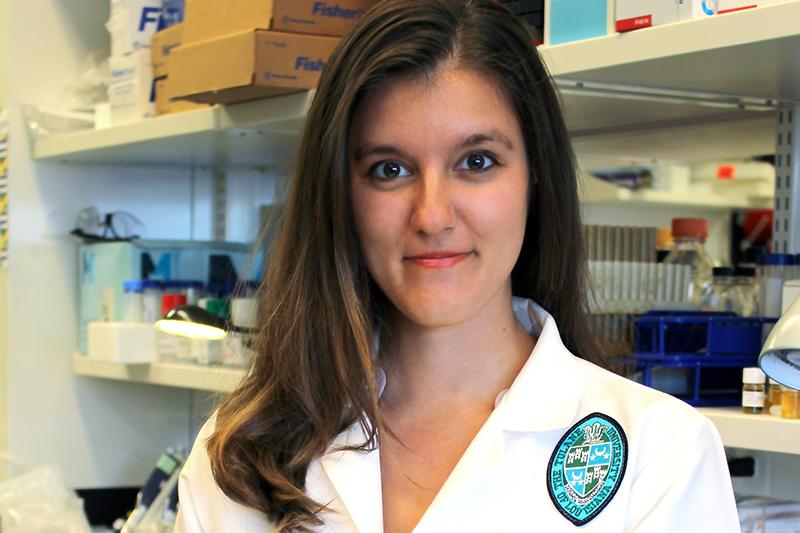MD/PhD student recognized for stem cell analysis
Tiffany Kaul, an MD/PhD candidate in Tulane School of Medicine’s physician scientist program, won top honors for her poster on L1 expression in induced pluripotent stem cells at the Southern Society for Clinical Investigation’s recent regional meeting in New Orleans.
Kaul, who is supported by a predoctoral National Institutes of Health fellowship for training in translational science, works in the laboratory of Prescott Deininger, PhD, Tulane Cancer Center director, School of Medicine professor, and Joe W. and Dorothy Dorsett Brown Foundation Chair in Oncology. At the meeting, she competed against approximately 450 entrants, most of them practicing physician scientists presenting their clinical work.
Kaul’s project involves the study and analysis of retroelements, or jumping genes, which can relocate themselves in induced pluripotent stem cells, a sort of master stem cell that can produce other types of cells or tissue. These stem cells have broad potential in regenerative medicine therapies. By learning the role of these jumping genes in regenerative stem cell therapies, Kaul hopes to shed light on the mechanisms that affect the safety and efficacy of such therapies.
Once called “junk DNA,” retroelements have the ability to amplify themselves in the genome through a copy/paste type mechanism.
“The problem is that these stem cells also have the proclivity to become cancerous,” said Kaul. “We see tons of a retroelement called L1 in these cells. The question is whether L1 is the reason these cells are becoming cancerous, and if so, how can we halt its expression.”
Kaul is excited about using new technological approaches such as bioinformatics and genetic sequencing in her investigations — skills and techniques that will orient her to one day practicing precision medicine.
“It was very exciting to discuss my work with the judges and explain why this research is important in better understanding the biology of these stem cells,” she added.
Kaul plans to graduate in 2021 and hopes to one day lead her own aging-focused research program combined with a clinical practice.


